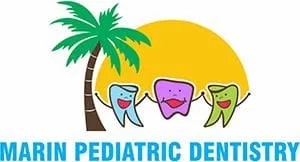
How dental benefit plans work
Many dental plans involve a contract that is between your employer and dental plan provider. You can also buy individual dental plans on your own through Health Insurance Marketplaces.
Your dental coverage is NOT determined by your child’s dentist.
Your child’s dentist’s primary goal is to assist you and your child in maintaining good dental health, but not every procedure your child’s dentist recommends will be covered by your insurance. To avoid any surprises on your bill, it’s important to understand what and how much your dental plan will pay.
Your employer and the plan provider agree on the dollar amount your plan pays and what procedures are covered. Your child’s dentist is not involved in deciding your level of coverage.
Dental Plans Share Treatment Costs with you
There are certain cost-control measures that dental plans use to determine how they share treatment costs with you.
Here’s some key terms that are used to describe their measures:
Deductible
A deductible is the amount of money that you must pay before your benefit plan will pay for any service. It can take more than one service or visit to meet your deductible. Most plans don’t require a deductible for preventive services like cleanings and exams for diagnostic services.
Co-payments
In the majority of cases, after you meet your deductible you will be expected to pay a percentage of the allowed amount of a covered dental service. This is called your co-pay/coinsurance.
For example: your coverage may pay 80% and you must pay the remaining 20% owed to your child’s dentist. If your bill totaled $100, then your plan pays $80 and you would pay the remaining $20.
Annual Maximums
This is the maximum dollar amount a dental insurance plan will pay during a year. Your employer decides the maximum levels of payment in its contract with the dental provider.
You would pay for anything over that set dollar amount.
For example:
Your child’s dental expense: $3,000
Your annual maximum: $2,500
You owe: $500
Coordination of Benefits (COB) or Nonduplication of Benefits
These terms apply to patient’s covered by more than one dental plan (dual insurance coverage). The benefit payments from all plans should NOT add up to more than the total charges. Even though you may have two or more dental benefit plans, there is no guarantee that all of the plans will pay for your child’s services. Sometimes, none of the plans will pay for the services your child needs. Each dental plan handles COB in its own way. Please check your plans details.
Frequency and Age Limitations
Dental plans may limit the number of times it will pay for your child’s treatment. But, your child may need a treatment more often to maintain good oral health. Make treatment decisions based on what is best for your child’s health, not just what is covered by your plan.
For example: Your plan may pay for teeth cleaning only twice in a calendar year, but your child’s needs cleaning 3 times a year, so you would pay out of pocket for the extra cleaning.
Dental plans may also have an age limit as to what age they will or won’t cover a service. In the case of dental sealants, some plans state the age limit may be up to the age of 13 but not including 13. If you still wanted to proceed with sealants at the age of 13 and higher, the cost would be out of pocket.
Not Dentally Necessary
Many dental plans state that only procedures that are medically or dentally necessary will be covered. If the claim is denied, it does not mean that the services were not necessary. Treatment decisions should be made by you and your dentist.
If your plans rejects your child’s claim because a service was “not dentally necessary”, you can appeal. Work with your benefits manager and the plan’s customer service department to appeal the decision in writing.
Other Cost Control Measures
Downgrading- when a dental plan changes the procedure code to a less complex or lower cost procedure than what was reported completed by your child’s dental office.
Make Your Child’s Dental Health the Top Priority
Although you may be tempted to make decisions about your child’s dental care based on what your dental plan will pay, remember that your child’s health is the most important thing. Talk to your child’s dentist to make sure they are getting the treatment that will get or keep their mouth healthy.


